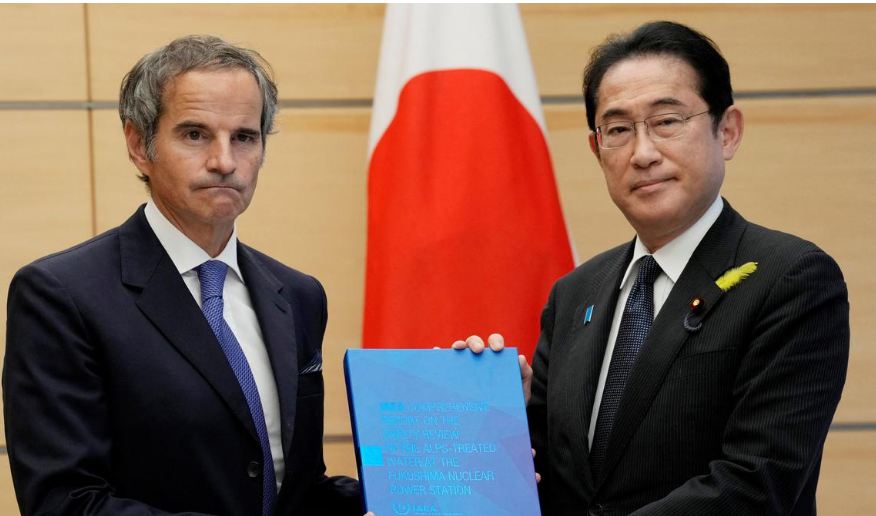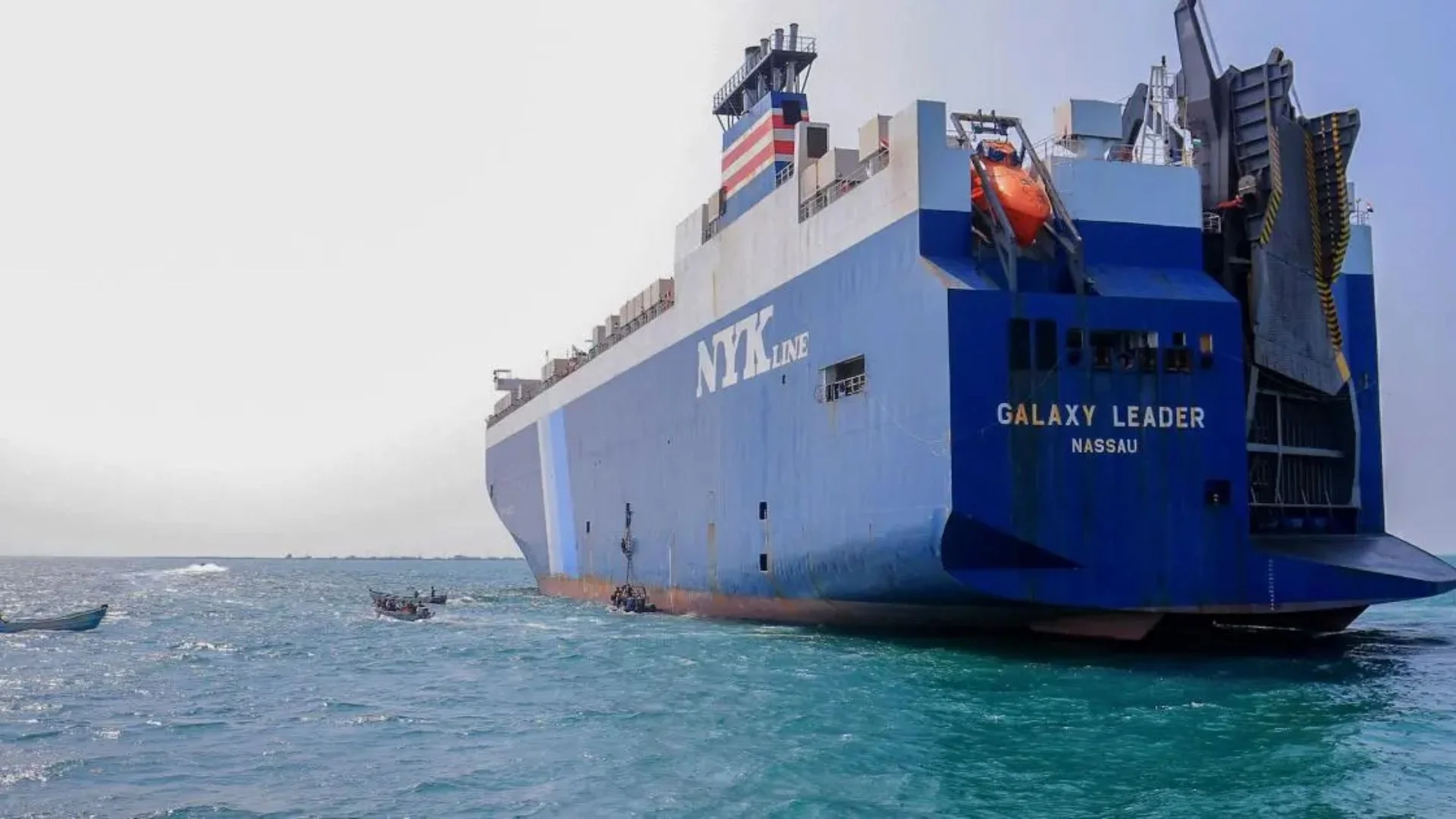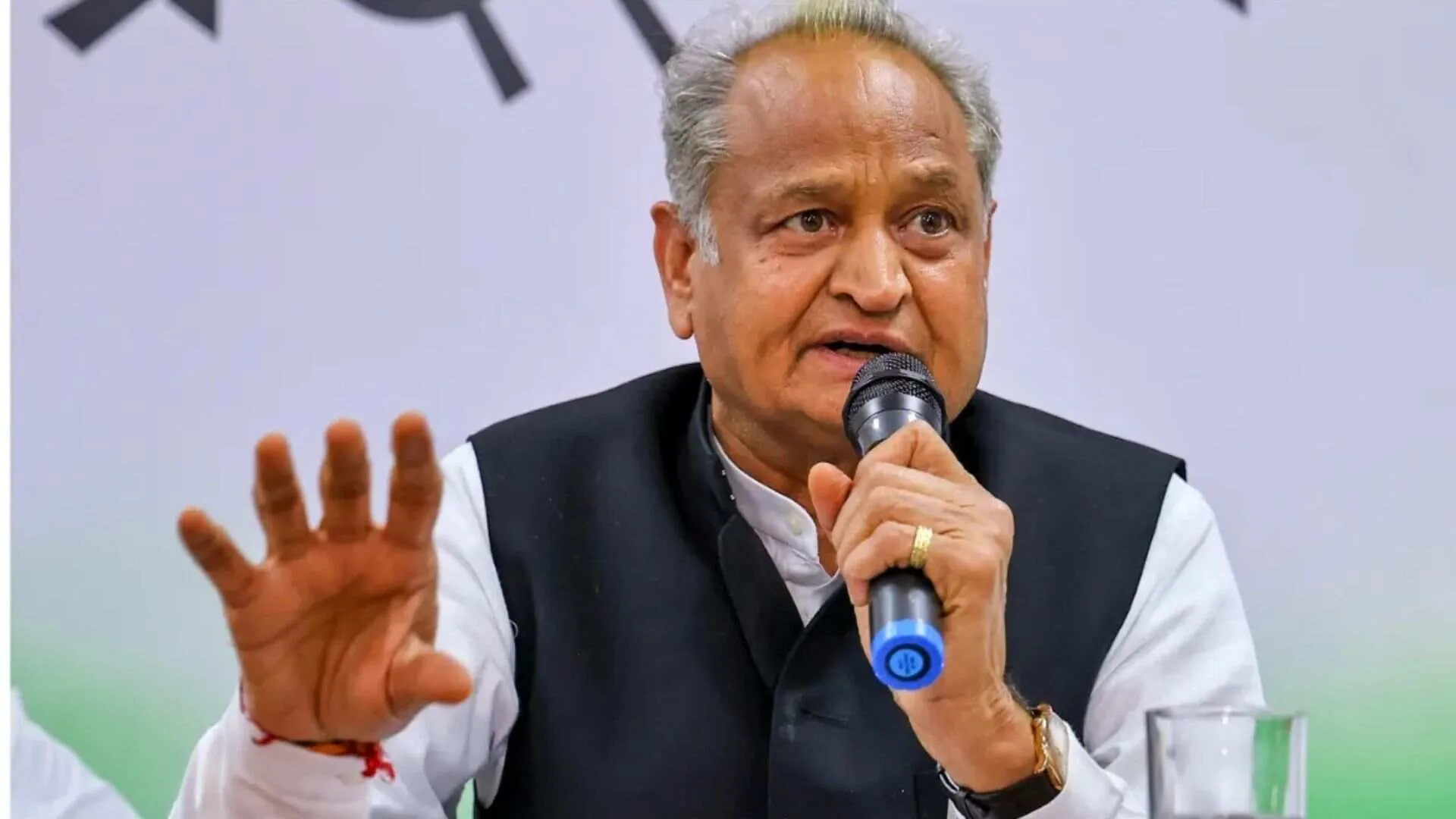Japan’s industry minister visited the tsunami-wrecked Fukushima nuclear power plant on Monday to see equipment that would be used in the planned release into the sea of treated radioactive water to ensure the safety of the controversial plan, while demonstrators, including many from South Korea, rallied against it.
The Japanese government defended the neutrality of the United Nations nuclear agency’s final report that concluded Japan’s water release plan met international safety standards, denying allegations that Japan pressured the International Atomic Energy Agency into publishing only favourable results.
Economy and Industry Minister Yasutoshi Nishimura visited the Fukushima Daiichi nuclear power plant Monday morning to see key equipment, including an emergency shutdown system, days after the Japanese regulatory authority granted a permit for the operator and the IAEA said the environmental impact from the water release would be negligible.
The government and the plant operator, Tokyo Electric Power Company Holdings, have struggled with how to manage the massive amount of contaminated water that comes out of the melted reactors before it is filtered and stored in tanks. They want to release the water into the Pacific Ocean after further treatment and dilution with seawater, making it safer than international levels.
The plan is opposed by the Japanese fishing community, which worries about reputational damage, and groups in South Korea and China have also raised concerns.
Japan has sought support from the IAEA to increase transparency and ensure the plan meets international safety standards, in hopes of gaining credibility for the controversial plan.
Some opponents at home and neighboring South Korea have accused Japan, one of the top donors to the IAEA, of pressuring the agency into publishing only positive reviews in its report.
Japanese officials have said such accusations are groundless. He added the government will discuss the safety measures and address concerns about reputational damage with fishing groups and other residents in the region. He vowed to respond to their concerns and requests.

















